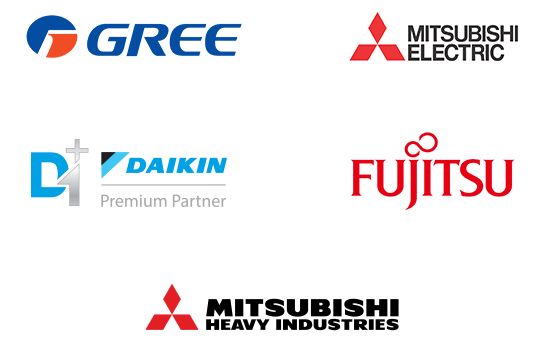Air conditioning systems have become a favourable appliance in homes and workplaces to provide cooling during the warmer months. With these appliances comes the concern of energy bill rates increasing and how much money an AC unit will add to our monthly outgoings. Whether the appliance uses excessive electricity during its day-to-day operations comes down to whether it uses excessive electricity.
Understanding Energy Consumption
Cooling capacity, usage patterns, environmental conditions and energy efficiency ratio are all determining factors of the energy consumption used when utilising an AC unit. Cooling capacity refers to your system’s ability to remove the heat from a room which is most commonly measured in British Thermal Units (BTUs) per hour. If you are using higher cooling capacities, this suggests that your aircon needs more energy to run.
What Influences Energy Usage in an air conditioner?
Opting for an energy-efficient air conditioner is important to save money during peak periods when consumption will be at its highest. Many factors will influence your air conditioning energy consumption; these factors are:
Climate – In hot and humid temperatures, your unit will have to work harder to cool the incoming air; therefore, energy usage can be higher at these times.
Insulation – If you have a well-insulated property with minimal air leakage, you will need less energy to keep a constant, comfortable temperature, as less cooled air will escape.
Efficiency rating – If you want an aircon unit that consumes less electricity but provides the same cooling output, you should opt for one with a higher energy efficiency rating.
Temperature settings – If you set your thermostat to a lower setting, you will require your AC to work harder, cooling down the air to that temperature, resulting in higher energy consumption. This is something you should consider when using your aircon.
Capacity – Speaking to our professional team will ensure you opt for a unit that suits the size of your space. An appropriately sized AC will operate more efficiently than an oversized or undersized one.
Unit type – Window units, split systems and other air conditioning units will have varying energy usage and efficiencies, so this is something to research and consider when installing your AC, however we can help you with this.
External elements – Direct sunlight, heat emitting appliances and shaded areas are all natural and external factors that can influence how hard your unit needs to work for cooling results. Therefore these factors will determine how efficiently your system runs and how much energy consumption it needs.
Usages – How many people are in one room and the heat-generating activities happening in the space, such as cooking and the use of electronics, will affect the temperature inside and your AC’s energy usage.
Thermostat programming – Using programmable thermostats or smart thermostats can optimise the energy usage of your air conditioning system by changing and adjusting the temperatures determined by patterns and times of the day.
Age and maintenance – Older AC units can be less efficient than newer models as technology has advanced over the years. This means older systems need more regular cleaning of the filters and coils to ensure they are running effectively. Blocked and dirty systems may run slower, therefore, needing and using more energy for cooling.
We help you install an energy efficient air conditioner
Our team at AirconCo are trained and qualified to handle all your air conditioning needs. We are one of London’s go-to 5-star services for installations, maintenance checks, repairs and replacements.
Find out more about AirconCo, book our service or contact us here.


